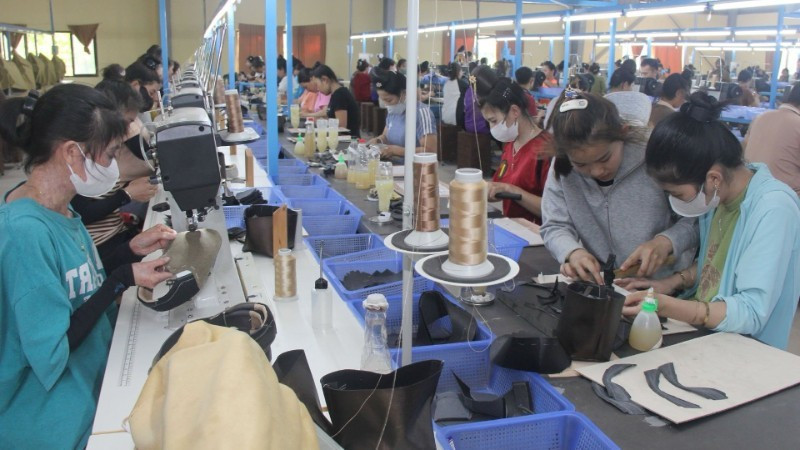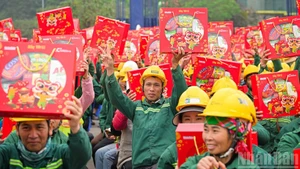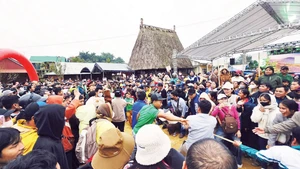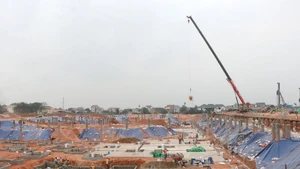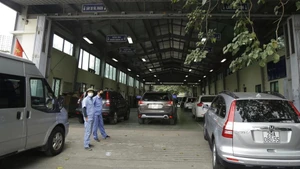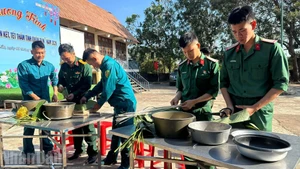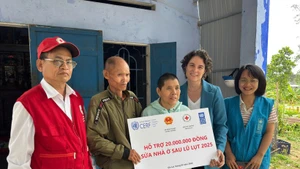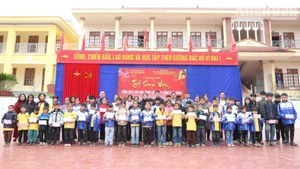Vocational training needs to be calculated carefully, designed practically, and aligned with market demand and the economic development model of each locality, following the principle of learning by doing.
Knowledge as the key
Son La Province has successfully implemented many programmes and policies on vocational training for rural workers, particularly in ethnic minority communities. In 2024 alone, vocational training in agriculture for rural labourers exceeded the target, with 20,617 people trained in line with local production development needs. In the first half of 2025, a further 1,309 people received agricultural training, while 5,097 rural workers secured new jobs.
Thanks to crop cultivation classes organised by the commune, Ca Van Cu, an ethnic Thai resident of Mon Hamlet (Muong Bu Commune, Son La Province), boldly invested in over two hectares of fruit trees including guava, Thai jackfruit, mango, custard apple, Tu Quy lemon and grafted longan. He also raises pigs and maintains a 60-square-metre fishpond. His integrated garden–pond–livestock model brings in nearly 400 million VND (15,260 USD) annually, with net profits reaching about 60%.
According to Vice Chairwoman of the Son La Provincial People’s Committee Trang Thi Xuan, by 2025 the rate of trained workers in the locality is expected to reach around 65%, with 28% of them holding diplomas or certificates. However, vocational training remains limited due to a lack of facilities and uneven training quality, particularly in remote and isolated areas.
In Cao Bang, from 2024 to date, the province has trained 7,378 people, including 6,771 rural workers who received elementary-level vocational training. Most trainees have applied their skills effectively, creating sustainable livelihoods.
Chief of Office of the Kim Dong Commune People’s Committee Luong Van Hanh said vocational training classes for rural workers have had a practical impact on people’s daily lives and production. Notable courses include organic livestock rearing, agricultural machinery repair, and high-yield crops such as tobacco, soybeans, peanuts and maize. These have enabled residents to apply their knowledge to improve productivity and gradually increase their income.
Nong Van Quoc, a resident in Na Vai Hamlet, Kim Dong Commune shared: “Thanks to participating in the organic poultry and pig farming training, my family has expanded our livestock. At peak, we have 30 pigs, selling over two tonnes of live pigs annually, generating around 140 million VND (5,300 USD) in income – higher than traditional livestock farming.”
Vocational training aligned with labour demand
According to the Central Steering Committee for National Target Programmes, bringing knowledge and rejuvenating the rural labour force, including in mountainous, remote and isolated areas, is an urgent task to develop human resources, reduce poverty sustainably and build new rural areas. During 2021–2025 period, the proportion of workers trained in line with the needs and conditions of ethnic minority and mountainous areas averaged 54.8%, with the overall period projected to reach 57.8% (above the target of 50%).
Vice Chairwoman Trang Thi Xuan noted that Son La will reform vocational training thinking under the principle of “training linked with employment,” shifting from training based on existing capacity to meeting market demand and the unique development conditions of each ethnic community.
Training will be diversified with more short-term and on-site courses, flexible to suit people’s education levels and living conditions. The province will also strengthen labour market information, prioritise job creation for workers, and implement effective employment support policies for rural and ethnic minority labourers.
At the same time, labour export will be promoted to markets with high and stable demand and income. Collaboration between schools and enterprises, and between local authorities and recruiters, will be enhanced to ensure training is linked directly to stable employment opportunities.
The Government has introduced many support programmes for the rural poor and ethnic minority communities, producing positive results. According to Deputy Chief of the National Office for Poverty Reduction Nguyen Le Binh, between 2021 and 2025, vocational skills training is being provided for 177,767 workers from poor, near-poor and newly non-poor households. Additionally, 146 institutions have received support for facilities and equipment, 131 vocational training standards have been developed, and 1,981 curricula and teaching materials created.
Deputy Minister of Agriculture and Environment Tran Thanh Nam said that by 2025 the target is for 55% of agricultural workers to have received training, rising to 70% by 2030, with over 30% holding diplomas or certificates. The focus will be on training rural workers to meet labour criteria in the new-style rural development programme, ensuring social security and socio-economic growth in ethnic minority and mountainous areas.
Training will also provide high-quality human resources for smart, ecological and organic agriculture, as well as digital transformation in farming. It will enable occupational shifts, moving part of the rural labour force into agricultural services, thereby supporting agricultural restructuring and climate change adaptation. With rural residents at the centre, these efforts aim to bring about more positive and tangible changes in occupational transition, job creation and income improvement.
